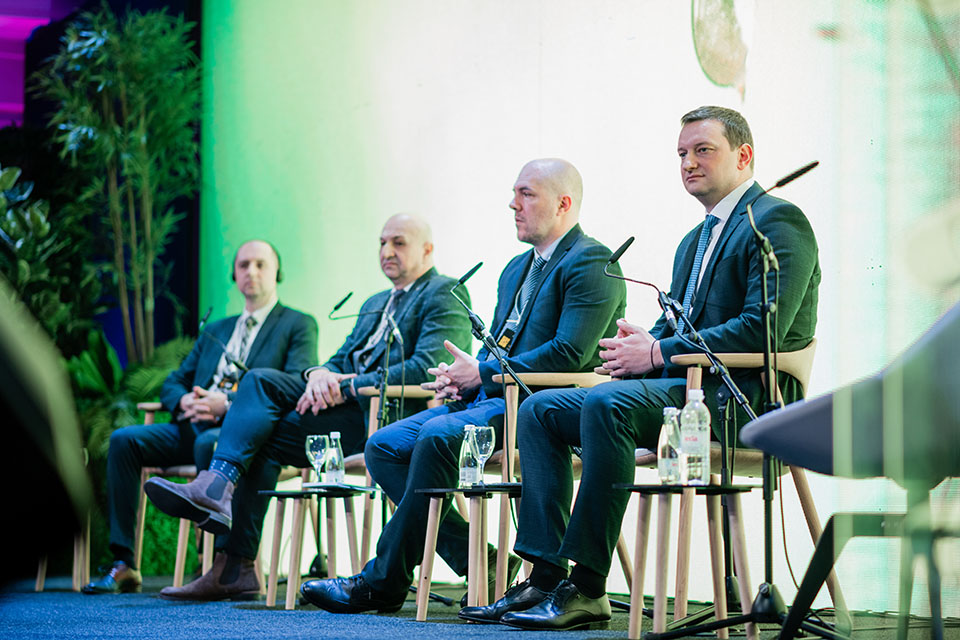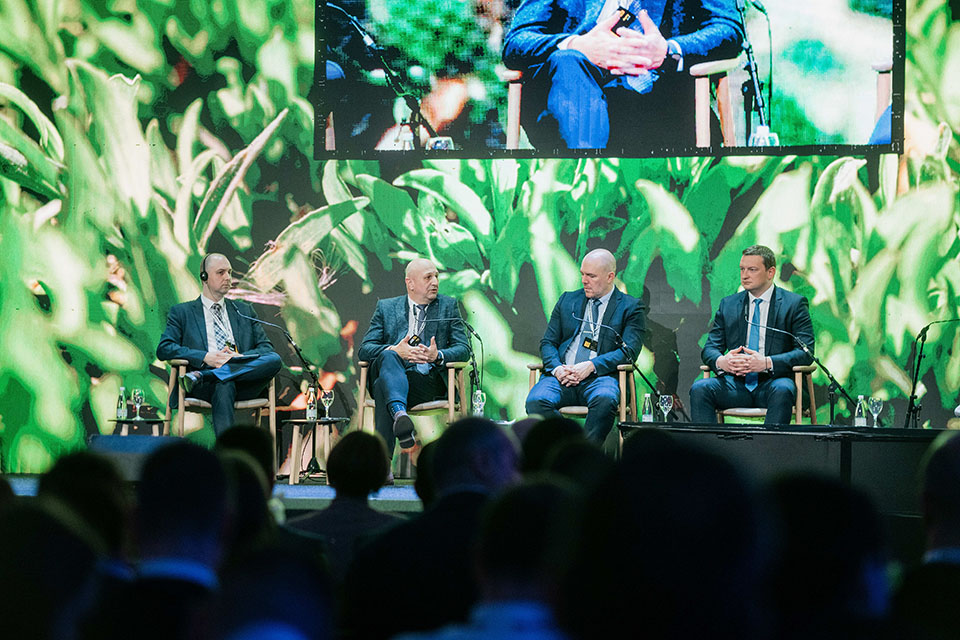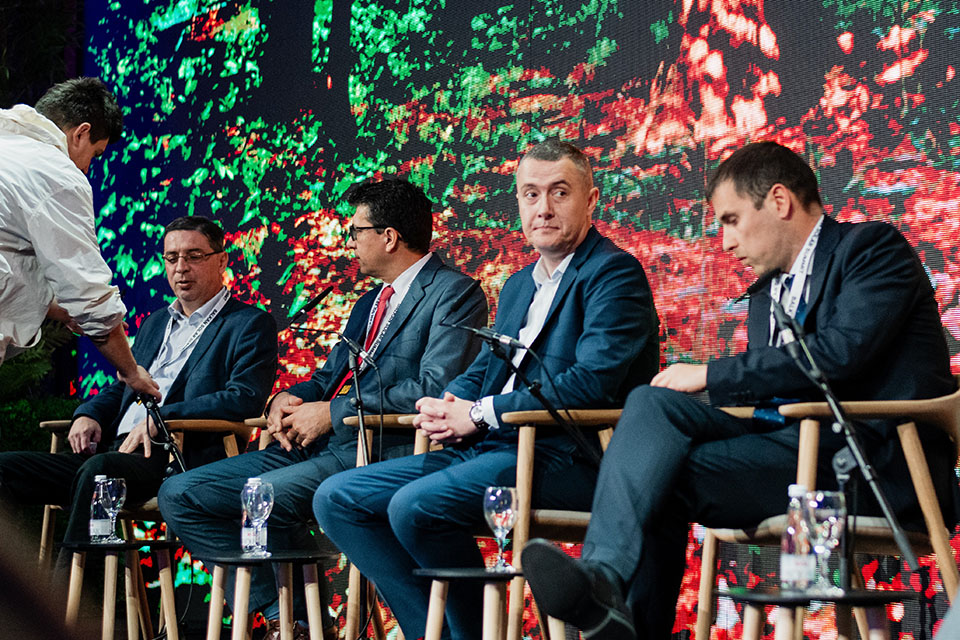Date: 14. Mar. 2025. - Notices
Balkan Solar Summit 2025: Key insights and the role of NOSBiH
Balkan Solar Summit, the leading regional conference dedicated to promotion and development of renewable energy in the Western Balkans was held on 27th and 28th February 2025 in Banja Luka. This important event gathered numerous experts, business leaders, decision makers and innovators as to discuss key challenges and possibilities within energy transition. Representatives of Independent System Operator in BiH actively participated in the conference.

NOSBiH General director, Nemanja Pandurević, PhD, participated in panel discussion ‘CBAM – an obstacle or an incentive in the decarbonization process’. This panel brought together eminent experts to examine the real effects of CBAM Regulation – from its impact on electricity production to its potential for encouraging or slowing down the transition to sustainable energy sources. It was discussed about key challenges and opportunities that CBAM Regulation brings as well as the most effective scenarios for the decarbonization of the energy sector in the Western Balkans.


The Head of the Department for Strategic Planning and Development, Obrad Škrba, participated in panel discussion ‘Integration of Renewable Energy in the Power System with Storage Solutions – Energy Storage Systems’. At this panel it was discussed about practical application of battery systems for maintaining network stability, and about technical and financial aspects of these solutions as well as about examples of successful implementations in progressive and transitional energy systems. Through a discussion with leading experts it was also discussed how energy storage technologies can become the heart of a sustainable energy system – creating security, flexibility and readiness for the future of renewable energy sources.


Main Dispatcher – the Head of the Department for Managing System in Real Time, Bojan Rebić, participated in panel discussion ‘Stability and Safety of Energy System in the Transition Conditions on Renewable Energy Sources’. With energy experts, decision makers and network operators the focus of this panel was on real causes of the system vulnerabilities, lessons from recent events and specific steps to improve safety. This discussion provided answers to how the region can build more secure networks that would support the growth of renewable energy sources and provide stable supply in circumstances of energy transitions.


Through various sessions and panel discussions, participants had the opportunity to gain insight into the latest trends in regulation and technology in the field of solar energy.